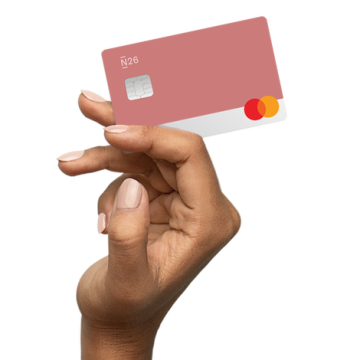
What should you study at university? A guide for future students
Find out how to choose the university program that’s right for you.
5 min read
Do you want to go to university but aren’t sure which major to choose? You’re not the only one. According to a survey conducted by Almalaurea, only 50% of Italian students know what they want to major in, while more than two-thirds only know what they don’t want to study. With all this uncertainty, how should you go about finding a major that’s a good fit? To help you along, we’ve prepared a handy guide that will give you some tips in finding the program that suits you best.The first step to picking the right major is understanding your strengths and weaknesses, and—most of all—what you like to do. This will help you pick a program that suits your goals and interests. Start by asking yourself these questions:Choosing a major you have no experience with is a tall order. That’s why it’s always a good idea to get as much information about your future field of study before diving in. Ask your teachers for advice, but don’t stop there. Browse social media to find groups of university students enrolled in the program you are interested in, and learn about the obstacles that those students face so you can evaluate the pros and cons. Attend orientation events and participate in open student days to gather new insights.Then, try to get some on-the-ground experience. Let’s say you’re trying to decide between a degree in Political Science and Cultural Heritage Studies. If you’d like to get a clearer idea of what a career in those fields will entail, you can apply for an internship with a relevant organization. You’ll earn a little cash and learn all the nuts and bolts of working in the industry. Alternatively, simply postpone your degree for one year. Working and/or traveling will offer valuable insight into the professional world, and you can surround yourself with people in your future area of study and learn from them. After exploring your interests and doing some research, it’s time to ask yourself two more serious questions:Choosing to study at university is a very important step—and finding the major that’s right for you requires a lot of clarity. Speaking of clarity, N26 is the 100% mobile bank that guarantees full transparency. With no hidden fees, free contactless payments, and a free virtual debit Mastercard, the N26 Standard bank account is the perfect choice for every university student. With just a few taps, you can check your account balance, make a payment or bank transfer, and send money to friends and family using our simple, intuitive app. And if you’re saving up for your studies, why not open a student savings account? So, what are you waiting for? Discover all our accounts and get started today.
Think long and hard about your interests
- What subjects am I most passionate about? Keep in mind that getting high marks in a particular subject and being passionate about the material are two different things. Think about subjects that you’d enjoy engaging with on a daily basis, and discussing with other people—topics that motivate and inspire you. If you choose to study medicine—or another healthcare profession, such as nursing and physical therapy—you’ll need to be passionate about human biology and anatomy, for example. Also ask yourself if you’d be prepared to pass an admission test in the field, if required.
- How long do I want to study? Do you like studying for long hours every day? Are you prepared to apply what you’ve studied in a real-world context over the long term? Working towards a career as a lawyer, professor, or doctor requires a greater time investment than other paths—so it’s a good idea to consider how long you want to stay in school before you begin your career.
- How do I like to spend my free time? Try to think about your hobbies or other pastimes you enjoy. Do they reveal any hidden passions? If you like crossword puzzles or enjoy analyzing song lyrics, for example, you might want to consider studying literature or languages.
- Are there subjects that slow me down or hold me back? Think about the subjects that simply don’t sit well with you, and then about the ones that you like but are difficult. Did you get bad grades in Business Administration but enjoy the challenge of running something? Maybe you should study economics or management instead. University is the best place to get a fresh start and prove yourself!
Do your research
Address the practicalities
- Will this degree open up a variety of career opportunities? To learn how employable you’ll be with your chosen major, it’s a good idea to visit forums, read articles, and analyze the data. Find out all the opportunities associated with the program you’d like to enroll in. For example, if you’ve decided to go to law school, find out whether you can work in a sector you like, or, if not, whether it can provide skills that can be used in another career that might be interesting to you.
- What are the costs? In Italy, some programs such as Primary Education, Veterinary Studies, or Psychology, require that you attend as a commuter or off-campus student. This greatly increases your expenses, especially if you don’t have a scholarship. If you’re interested in studying abroad, inform yourself ahead of time regarding programs, deadlines, and living costs.
Your university studies with N26
Find similar stories
BY N26Love your bank
Advertising message for promotional purposes. Please see the contractual documentation for more information in the Legal Documents Section.
Related Post
These might also interest youSTUDENTS3 ways for financing your college educationThis guide takes a closer look at the main options students in Europe have to pay for college and the eligibility requirements for each one. It includes links to databases for scholarships and grants.
6 min read
STUDENTSWhat is the cost of attendance at university in the EU?It’s important to consider the cost of attendance when studying at university. From tuition fees to living costs, here’s everything you need to know.
6 min read
STUDENTS10 good reasons to study abroad A detailed list of reasons why studying abroad is a great idea. This guide looks at career prospects, cultural insights, travel opportunities, and financial considerations.
7 min read



